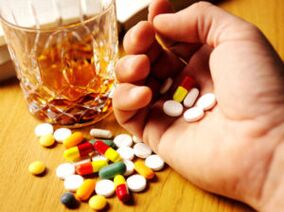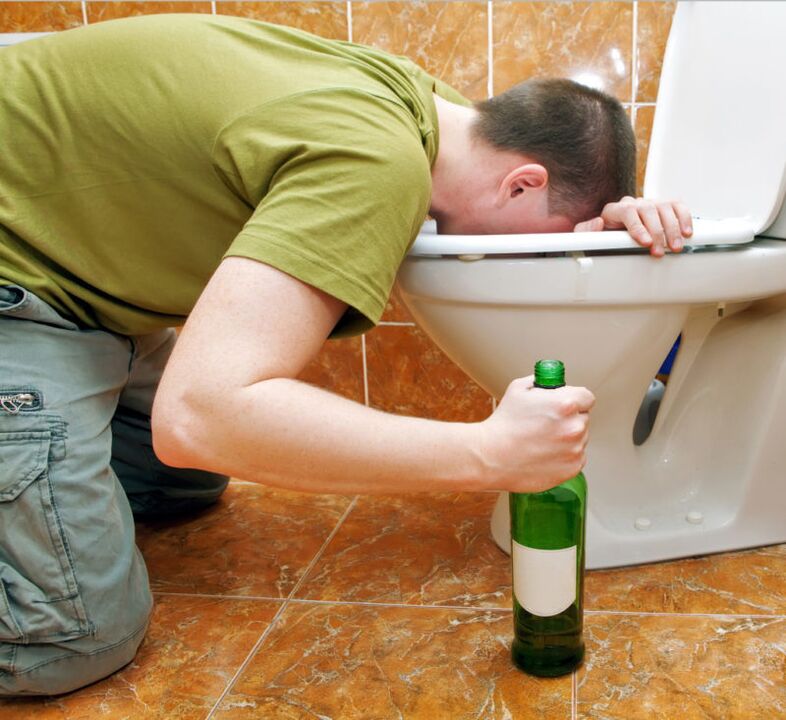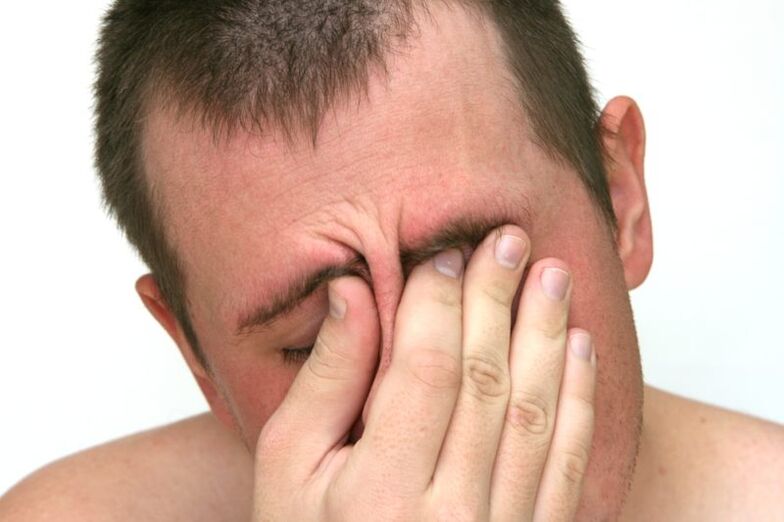
Situations in which the taking of medication coincides with the holidays are not uncommon. Therefore, the question arises, is it possible to take antibiotics and alcohol, the compatibility of which is in doubt?
There are many myths that the combination of alcoholic beverages and drugs does not harm the body.
Many people know that alcohol should not be drunk during antibiotics. The main question arises: why?
This is what will be discussed in this article. You will also learn about the consequences of drinking alcohol after antibiotics.
Next, consider why you shouldn't drink alcohol with antibiotics.
Possible consequences
Any sane person understands that health is the most important thing, that is why they do not want to take risks and have serious consequences. This rather popular topic must be analyzed in detail, the opinion of doctors must be taken into account to know for sure whether it is possible to drink alcohol while taking antibiotics. Experts say that taking medication implies a total rejection of products that contain alcohol (this also applies to all kinds of low-alcohol cocktails and beer).
Long-term studies have shown that, in certain cases, alcohol intake does not interfere at all with antibiotic treatment, but it can have consequences such as:
- headache in the temple area, as well as migraine;
- poisoning;
- negative effects on the kidneys and liver;
- mental disorders;
- dyspeptic syndrome.
Alcohol poisoning
Drugs with antibacterial properties, acting on the causative agent of the disease, destroy it. In the same way, the antibiotic affects the whole body as a whole, but the concentration and the dose are insufficient to harm a person. During therapy, the organs of the urinary system and the liver are overloaded, as they fight the toxic effects of antibiotics.

If you add alcohol intake to this, the liver will receive a large additional burden, as a result, hangover and alcohol poisoning.
The worst case scenario is when the active ingredients in drugs go into a chemical reaction with fusel oils and ethanol. In these cases, the consequences can be dangerous and unpredictable, sometimes even fatal.
It should be noted that some of the medications that are taken are aimed at getting rid of alcohol addiction. They include components that react negatively to the appearance of alcohol in the blood. If you drink any drink containing alcohol and take such a drug, the destructive processes within the body cannot be stopped. Because the active substance of the drugs will begin to suppress the enzyme responsible for the processing and removal of ethanol from the body. The acetaldehyde cleansing process stops - this is the main reason for the sudden deterioration of well-being. Acetaldehyde is very toxic, and since the body does not have the resources to cleanse itself, poisoning continues to develop, ultimately leading to dire consequences.
If you neglect the doctors' warnings and contraindications outlined in the pill instructions, there is a high probability of severe poisoning, which is accompanied by such problems as:
- tachycardia or arrhythmia;
- confusion, lack of coordination;
- central nervous system disorders;
- weakness and chills;
- threw up;
- apathy;
- drowsiness, lethargy;
- dysfunction of the stomach and intestines;
- problems with blood vessels;
- acute heart failure.

When can you drink alcohol after antibiotics? It should be borne in mind that the human body has individual reactions and characteristics, therefore the cause of these consequences can be many drugs taken simultaneously with alcohol. The first symptoms of intoxication can appear 10 to 15 minutes after drinking alcohol. And to regain health and eliminate the consequences, it will take at least 10 days. Hence the conclusion: you can indulge yourself with wine, cognac, or beer after antibiotics after the antibiotic treatment is completed, and more than 3 days have passed since the last dose of the drug. And it is allowed to drink alcohol 2 days before the start of the medication.
Antibiotics and beer
The same goes for antibiotics and beer. Many people liked its sour bread taste so much that they stopped considering beer as an alcoholic beverage. However, research results show that taking antibiotics in combination with alcohol is incompatible and has unpredictable consequences. The effect of the active substance of the drug is weakened and, accordingly, it is more slowly excreted from the body. This phenomenon is explained by the fact that ethanol alters the liver, which is responsible for the processing of drugs that enter the body. There are antibiotics that are strictly forbidden to take with beer.
After how many days can you drink beer without alcohol?
The widespread belief that non-alcoholic beer is not harmful during treatment is a misconception, as beer that is marketed as non-alcoholic contains a small percentage of alcohol. From this it follows that the possible consequences of combining antibiotics with this drink are the same as in the case of traditional standard strength beer. The only caveat is that after antibiotics it is allowed to consume beer without alcohol not after 3 days, but after 2. This is explained by the fact that a small amount of alcohol is excreted much faster from the body and the liver works without carrying heavy loads.
Therefore, taking antibiotics in combination with alcohol is far from the best solution. Reason sensibly and ask yourself why and what type of treatment you started. The answer is obvious, and priorities must be set: You are being treated to improve your health, not to make it worse by drinking.
























